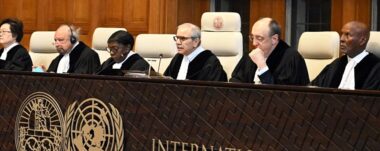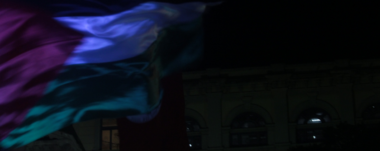Spain’s Request To The ICJ On Gaza/Israel
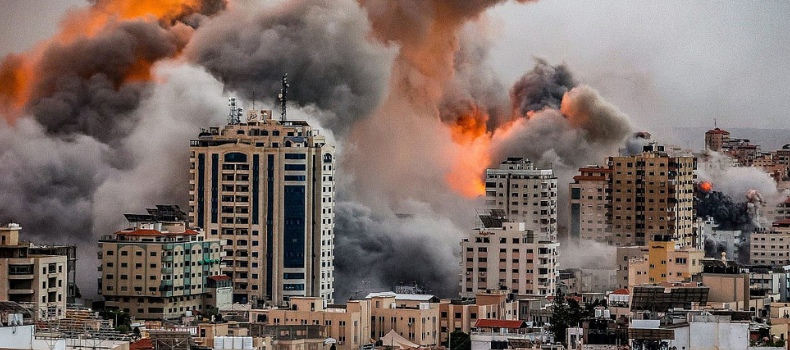
Original title: “Gaza / Israel: some notes on the request for intervention presented by Spain before the International Court of Justice (ICJ)”. Text written by Professor Nicolás Boeglin, from the Law School of the University of Costa Rica.
On June 28, 2024, Spain submitted to the International Court of Justice (ICJ) a formal request for intervention. It is a request for intervention as a third State in the dispute between South Africa and Israel: the text of the official ICJ communiqué is available in French and English.
Spain’s formal request for intervention, which is based on Article 63 of the ICJ Statute, is now available at this link.
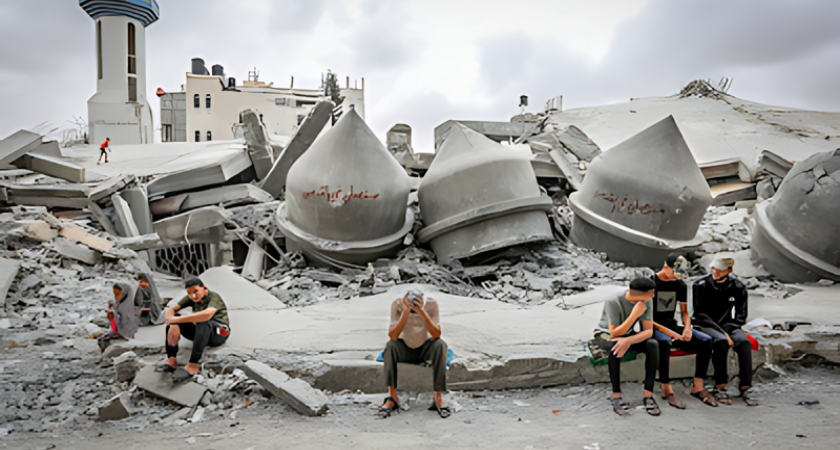
In these days of July 7-10, several States again condemned Israel’s bombardment of schools and refugee camps in Gaza, which has been repeatedly observed since July 6 (see note by France24 in English). While some expressly referred to Israel in the text of their communiqué (see for example the communiqué of Turkey or that of Indonesia), others such as Costa Rica (see official communication), omitted any express reference to Israel (Note 1).
Spain Gaza Israel
With respect to Costa Rica, similar “omission” could be observed comparing in May 2024, Costa Rica’s text (see official communiqué of May 27 –Note 2) with those of Brazil (see statement), Chile (see text), Colombia (see text) or from Mexico (see text) regarding Israel’s bombing of a camp of refugees and displaced persons in Rafah in Gaza.
Still on the subject of the ICJ and Palestine (and … Costa Rica), it is worth noting that on July 19 the ICJ will release its advisory opinion on Israel’s illegal occupation of Palestinian territory (see official communiqué of the ICJ on July 12): our esteemed readers may remember an article of ours published in February 2023, in which we pointed out how unusual was the vote of Costa Rica registered in December 2022 in the United Nations General Assembly, entitled “Latin America before request for an advisory opinion to international justice on the situation in Palestine, brief notes on unusual vote against Costa Rica” (see text, digital media LaRevistacr, edition of February 4, 2023).
Spain’s Request Shortly
En las 15 páginas del texto de su solicitud del pasado 28 de junio, España refiere a la interpretación de varias disposiciones de la Convención contra el Genocidio de 1948 que, como Estado Parte de la misma, pretende que sea tomada en cuenta por los jueces de la CIJ a la hora de considerar el fondo de la demanda interpuesta por Sudáfrica contra Israel.
On page 6 we read that, for Spain, the intentionality of genocide, on which some States (close to Israel) want the ICJ to focus its analysis, should be complemented with other criteria:
24. In Spain’s opinion, precisely because direct evidence of genocidal intent is rare, it is crucial to interpret the do/us specialis requirement with a balanced approach that recognizes the singular gravity ofthe crime of genocide, without rendering the threshold for inferring genocidal intent so difficult to meet so as to make findings of genocide nearimpossible.
25. In this regard, Spain considers that the standard adopted by the Court in Croatia v. Serbia provides the basis for such a balanced approach. The Court highlights the central importance of reasonableness by observing that “[t]he notion of ‘reasonableness’ must necessarily be regarded as implicit in the reasoning of the Court,” not least to avoid an approach that would make it “impossible to reach conclusions by way of inference.” Thus, when determining whether specific intent can be inferred from conduct or not, one must weigh the evidence, and filter out inferences that are not reasonable. Put differently, the “only reasonable inference” test applies only between alternative explanations that have been found to be reasonably supported by the evidence.
As a State Party to the 1948 Genocide Convention, Spain seeks to make the ICJ judges aware that they should also be guided by the interpretations that best respond to the spirit of the Convention. That is why it seeks to intervene on the basis of Article 63 of the ICJ Statute, which reads as follows:
Artículo 63: 1. Cuando se trate de la interpretación de una convención en la cual sean partes otros Estados además de las partes en litigio, el secretario notificará inmediatamente a todos los Estados interesados.
2. Todo Estado así notificado tendrá derecho a intervenir en el proceso; pero si ejerce ese derecho, la interpretación contenida en el fallo será igualmente obligatoria para él.
In another paragraph of its request to the international judge in The Hague, it is stated that, for Spain, the United Nations reports must be taken into account by the international judge (despite the angry disqualifications that Israel expresses with each new report produced by the United Nations on the situation in Gaza):
30. Spain considers that, when assessing whether the acts described in Article II of the Convention have been committed, the International Court of Justice, as the primary judicial body of the United Nations, should take into account the data, facts and reports produced by the United Nations, its agencies and bodies, and by other reliable sources with authoritative knowledge of the situation in Gaza. In Spain’s view, examining the results of independent investigations under the auspices of the United Nations before qualifying a situation as genocide is a good practice that should be applied to the present case.
We recommend to our esteemed readers the complete review of Spain’s request for intervention, as the text contains many other points on which Spain intends to lead the ICJ judges to reflect, when analyzing Israel’s military actions in Gaza since the afternoon/evening of October 7, 2023.
It should be recalled that the “Convention on the Prevention and Punishment of the Crime of Genocide” (see fulltext) dates from 1948 and, that some of its provisions merit an evolutionary interpretation.
An Action Preceded By Other Similar Efforts
Spain’s application for intervention is in addition to other applications of this type that we had the opportunity to analyze previously, namely the applications submitted by the following States:
- Palestine, which formally filed it last June 3, based on both Article 63 and Article 62: see in this regard our note entitled “Gaza / Israel: Palestine declares it recognizes ICJ jurisdiction and asks to intervene“
- Mexico (Article 63) which submitted it last May 24, 2024 (see text): we refer our esteemed readers to the note that we prepared at the time on this request by Mexico, entitled: “Gaza / Israel: regarding Mexico’s request to intervene in South Africa’s lawsuit against Israel before the International Court of Justice (ICJ)“
- Libya (see application filed on May 10, 2024).
- Colombia (see application dated April 5, 2024) and;
- Nicaragua, which opted for a much more difficult route, basing its request for intervention on Article 62 alone (see request of January 2024 in French and in English): in this regard, we refer our esteemed readers to our note entitled “Gaza / Israel: apropos of Nicaragua’s recent request for intervention before the International Court of Justice (ICJ) in South Africa’s lawsuit against Israel“.
The Specificity Of Spain’s Management
It is noteworthy that while Latin America has shown early evidence of its support for South Africa before the international judge in The Hague with Nicaragua since January 2024, the same cannot be said of other regions of the world.
With regard to Europe, Spain has become the first European State to join South Africa in its legal battle against Israel, which began on December 30, 2023, by having recourse to an instrument such as the 1948 Genocide Convention: it is a multilateral instrument to which 153 States are Parties (see official status of signatures and ratifications).
It is extremely surprising that Spain and only 4 other States – in addition to Palestine – consider it appropriate to request intervention in this procedure, given the images of the unspeakable drama that has been unfolding in Gaza since the afternoon/evening of October 7, 2023.
Spain Gaza Israel
It is worth remembering that, before another international jurisdiction, the International Criminal Court (ICC), it was the Latin American States that made urgent representations to the Office of the Prosecutor of the ICC, in order for it to act much more quickly:
- on November 17, 2023, in the face of disproportionate and indiscriminate actions on the civilian population of Gaza by the Israeli military forces, Bolivia agreed with South Africa with three other States, sending a referral (“referral“) of urgent nature to the ICC (see text which includes the list of signatories in which no State of Europe appears);
- on January 18, 2024, it was jointly Chile and Mexico who submitted a very similar document to the ICC (see text).
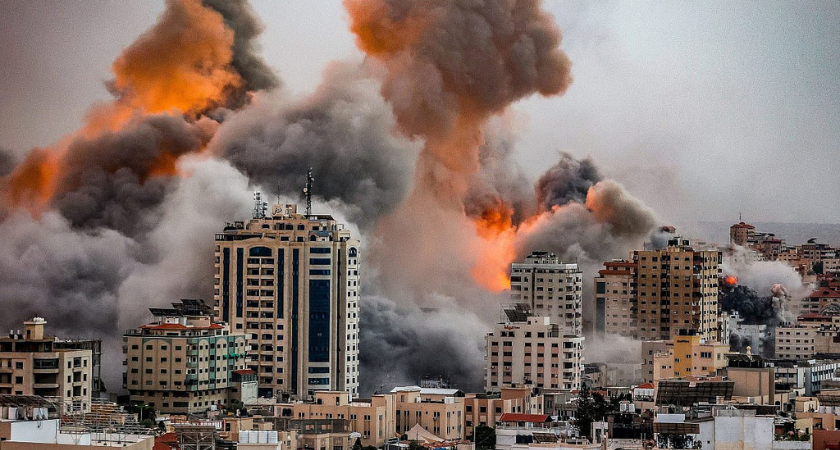
Spain Gaza Israel
It is interesting to note that the result of the elections in the United Kingdom last July 4 will possibly lead its new authorities to desist from a move by the previous British authorities, tending to delay the ICC decision on the request for the arrest of 3 Hamas leaders and 2 Israeli leaders made by the ICC prosecutor last May 20 (see note from The Guardian of July 8, 2024). We refer to it:
- to the text of the May 20 statement of the ICC Prosecutor;
- to the text of the UK application to the ICC of June 10 and to the text public letter from the NGO Human Rights Watch also of June 10, 2024 summoning the British authorities to explain the reason for this demarche, and;
- to the text of the decision of an ICC Chamber responding to the United Kingdom, dated June 27, 2024.
Recognition Of Palestine As A State
In the case of Spain, it is worth noting that it recently joined a group of European states that decided to unilaterally recognize Palestine as a state (see official communiqué of May 28, 2024).
This was a diplomatic gesture joined by Ireland (see official communiqué of the same date), Norway (see official communiqué) and Slovenia (see communiqué of June 4): with Spain, these three European states set aside the policy of the European Union (EU), which persists in considering that it is not yet time to recognize Palestinian statehood.
On June 21, 2024, Armenia which is not part of the EU, opted to take a similar decision recognizing Palestine as a state (see official statement).
Regarding Spain, in November 2014 we had had the opportunity to analyze an overwhelming vote within the Spanish Congress requesting the recognition of Palestine: see in this regard our note entitled “Spanish Congress ‘urges’ recognition of Palestine as a State“, published in the DerechoalDia portal, in its November 21, 2014 edition.
Spain Gaza Israel
It is appropriate to recall that, when the Security Council on April 18, 2024 observed a single vote against (veto) by the United States to a resolution requesting the admission of Palestine as a state, it was the English-speaking Caribbean states who decided to openly defy the United States: Barbados announced 24 hours after this unjustifiable veto by the United States that it recognized Palestine as a state (see note from Caribbean News), Jamaica announced it on April 22 (see official statement), Trinidad and Tobago on May 2 (see official press release) and Bahamas May 7 (see release).
The challenge to U.S. leadership by these four English-speaking Caribbean states constituted a powerful call, which, quite possibly, inspired other states that still persisted in not recognizing Palestine as a state, particularly those located on the European continent.
It is likely that with these 4 new recognitions coming this time from European states, we will see several additional recognitions of Palestine as a state.
It should be specified that, in the American hemisphere, together with Canada and the United States, the only State that does not recognize Palestine as a State is Panama: since August 2014, its authorities “evaluate” the possibility of recognizing Palestine as a State (see note of the Star of Panama of August 2014).
Spain Gaza Israel
To date, Palestine is recognized by 145 states worldwide. Between the recognition of Barbados (April 19, 2024) and Armenia (June 21, 2024), there are a total of nine recognitions. In order to have an idea of the dynamics initiated by Barbados on April 19, 2024, the nine previous recognitions of Palestine as a State are located between September 2011 (Grenada) and July 2019 (Saint Kitts and Nevis).
Regarding the U.S. veto registered at the Security Council on April 18, which somehow triggered this series of recent recognitions, we refer our esteemed readers to our note on the matter, entitled, “The U.S. veto on the admission of Palestine as a Member State of the United Nations: some reflections“, available here.
The Senselessness Of Israeli Actions In The Face Of International Justice
In the latest status report prepared by the United Nations (as of July 1, 2024, see link), it is stated that:
Between the afternoons of 27 June and 1 July, according to the Ministry of Health (MoH) in Gaza, 135 Palestinians were killed and 631 were injured. Between 7 October 2023 and 1 July* 2024, at least 37,900 Palestinians were killed and 87,060 were injured in Gaza, according to MoH in Gaza. // Between the afternoons of 28 June and 1 July, three Israeli soldiers were killed in Gaza, according to the Israeli military. Between 7 October and 1 July, according to the Israeli military and official Israeli sources cited in the media, over 1,517 Israelis were killed, the majority on 7 October. These include 317 soldiers killed in Gaza or along the border in Israel since the beginning of the ground operation. In addition, 2,018 soldiers were reported injured since the beginning of the ground operation. As of 1 July, it is estimated that 120 Israelis and foreign nationals remain captive in Gaza, including fatalities whose bodies are withheld.
It is remarkable that, in a recent article dated June 27, a noted French military expert on aerial bombardment warns that the figures on fatalities and injuries in Gaza are far below the reality on the ground:
Avec le trend actuel de 300 bombardements par jour, soit 9,000 morts par mois (le calcul de projection se base sur le bomb damage assesment expliqué dans l’article ci-dessous), le bilan de l’offensive Netanyahou se situe désormais entre 70 et 80 mille morts que l’état-civil de Gaza est incapable de suivre puisqu’il ne peut compter que les morts qu’il a enregistrés alors qu’il est totalement déstructuré.
véase artículo titulado “Gaza : pourquoi Netanyahou fait tout pour empêcher un cessez-le-feu ?“
Spain Gaza Israel
Still in relation to the death toll in Gaza, we read in this recent article published on July 5, 2024 in the scientific journal The Lancet and entitled “Counting the dead in Gaza: difficult but essential“, that it is a figure close to 186,000 dead people that should be estimated in Gaza:
In recent conflicts, such indirect deaths range from three to 15 times the number of direct deaths. Applying a conservative estimate of four indirect deaths per one direct death9 to the 37 396 deaths reported, it is not implausible to estimate that up to 186 000 or even more deaths could be attributable to the current conflict in Gaza. Using the 2022 Gaza Strip population estimate of 2 375 259, this would translate to 7·9% of the total population in the Gaza Strip.
These estimates of the unspeakable drama being witnessed in Gaza are backed up, from within Israel itself, by various statements from senior officials confirming the commission of war crimes as well as acts of torture against Palestinian prisoners (see, among many, this internal document of June 26 from a senior military commander to the Prime Minister circulated on social networks as well as this detailed article published in Israel by the digital media Magazine+972 on testimonies of Palestinian detainees at the military base located in the Negev desert, Sde Teiman, released last June 27 and entitled‘More horrific than Abu Ghraib’: Lawyer recounts visit to Israeli detention center. At Sde Teiman, Khaled Mahajneh found a detained journalist unrecognizable as he described the facility’s violent and inhumane conditions”).
Spain Gaza Israel
Recently (July 3) United Nations experts denounced the detention in Israeli prisons of Palestinians from the West Bank without charge for decades (see official communiqué of the United Nations), while France (see communiqué) and Norway vehemently condemned Israel’s new settlements in the West Bank (see official communiqué of July 4, Norway) as well as Mexico (see communiqué), among many other official reactions.
The report on the dramatic situation for many Palestinian families in the West Bank prepared by the United Nations as of July 3 (see report) details the manner in which Israeli security forces have significantly increased repression against the Palestinian civilian population, in their efforts to support the exactions committed…by Israeli settlers in the West Bank. This report (the full text of which is recommended) reads:
Between 7 October and 1 July, 539 Palestinians, including 131 children, have been killed in the West Bank, including East Jerusalem; these include 522 killed by Israeli forces, ten by Israeli settlers, and seven where it remains unknown whether the perpetrators were Israeli soldiers or settlers. In addition, over 5,420 Palestinians have been injured in the same period, including about 830 children. More than a third of the total injuries were caused by live ammunition. During the same period, 14 Israelis, including nine members of Israeli forces and five settlers, were killed by Palestinians and at least 105 Israelis, including about 90 members of Israeli forces, were injured in the West Bank, including East Jerusalem. In addition, during the same period, attacks by Palestinians from the West Bank resulted in the killing of eight Israelis and four Palestinian perpetrators in Israel.
Spain Gaza Israel
This July 9, 2024, in an official United Nations communiqué (see text in full) a group of human rights experts stated that:
We declare that Israel’s intentional and targeted starvation campaign against the Palestinian people is a form of genocidal violence and has resulted in famine across all of Gaza. We call upon the international community to prioritise the delivery of humanitarian aid by land by any means necessary, end Israel’s siege, and establish a ceasefire.
In Costa Rica, in a recent forum organized at the University of Costa Rica (UCR) on July 4, entitled “Gaza/Israel: from the information siege to the siege of international justice” (see video), we had the opportunity to listen to a young student, member of the Costa Rican Jewish community, denouncing the various crimes of Israel in Gaza, a courageous attitude, which contrasts with the rest of the members of the Costa Rican Jewish community since October 7, 2023.
Meanwhile, in France, a renowned specialist in international relations recently (July 4) explained how the drama being experienced in Gaza and its highly questionable treatment by the French press has conditioned alliances within the French left, in view of the second round of elections held this July 7 (see video broadcast entitled “Gaza war and legislative elections“). In his analysis, the expert highlights how the simple fact of criticizing Israel’s war crimes in Gaza has been interpreted – in a totally erroneous manner – by many political sectors as anti-Semitism.
In Conclusion
Beyond the circles close to Israel and their influence on certain media in France (as well as in many other latitudes), there is no doubt that many more UN Member States should be called upon to activate the various existing jurisdictional mechanisms in order to curb Israel’s destructive impetus in Gaza: in Europe, but also in Africa, Latin America, Asia or in the Arabian Peninsula and the Middle East.
Given the unfailing support that Europe has historically shown for the consolidation of international criminal justice, the total absence of Europe in actions before the ICC is striking: any European State could have opted for a similar action in its individual capacity in its dealings with international criminal justice. None has done so at the time of writing (July 6, 2024).
Spain Gaza Israel
As if the unspeakable drama observed in Gaza by all the States of the world since the afternoon/evening of October 7 had no way to similarly challenge each of the States Parties to the Rome Statute, which to date number 124 States, according to the official status of signatures and ratifications; or as if the chilling images coming from Gaza could not be considered reliable as they did not come from Western media.
Precisely, it should be noted that on July 7, the Foreign Press Association issued a statement demanding that Israel allow the press to work in Gaza and carry out on-site investigations in order to inform the world of what is really happening there (see release): according to the Committee for the Protection of Journalists, as of July 7, 108 journalists and communicators have been deliberately killed by Israel in the Gaza Strip since October 7, 2023 (see report).
Text shared by Nicolás Boeglin, Professor of Public International Law, School of Law, University of Costa Rica (UCR). Contact: [email protected]
Notes
Note 1: Costa Rica’s official communiqué of July 10 reads as follows:
JULIO 10, 2024 10:25 AM
Costa Rica condena ataque a centro de refugiados en gaza
San José, 10 de julio de 2024. Ante ataque a centro de refugiados en Gaza, Costa Rica reitera llamado a cese al fuego y protección de civiles. // Costa Rica censura el ataque a una escuela que fungía como refugio para civiles desplazados en Khan Yunis, Gaza, el cual resultó en varias decenas de muertes, incluyendo niños, así como múltiples heridos. // Se recuerda que, según el derecho internacional humanitario, las escuelas y campos de refugiados gozan de protección especial y los civiles, en particular los niños y niñas, deben ser protegidos en todo momento. // Luego de nueve meses de conflicto reiteramos el llamado a un alto al fuego inmediato, a la liberación de todos los rehenes, al acceso irrestricto a la ayuda humanitaria y al cumplimiento sin dilación de las resoluciones del Consejo de Seguridad de las Naciones Unidas y de las medidas provisionales vinculantes emanadas de la Corte Internacional de Justicia.
Comunicación Institucional 282-2024, Costa Rica condena ataque a centro de refugiados en Gaza,
Miércoles 10 de julio de 2024“
Note 2: Costa Rica’s official communiqué of May 27, 2024 reads as follows:
Ante ataque a campo de refugiados en Rafah, Costa Rica hace llamado a aun alto al fuego inmediato, al cumplimiento de las medidas provisionales de la Corte Internacional de Justicia y a la investigación del incidente
San José, 27 de mayo de 2024. Costa Rica ha recibido con consternación la noticia del bombardeo sobre un campo de refugiados en Rafah, que ha causado la muerte de civiles inocentes, incluidos mujeres y niños, además de múltiples heridos. // Esto suma mayor sufrimiento a una población varias veces desplazada, carente de las condiciones básicas de sobrevivencia por meses, que se encontraba en el último lugar donde se les había prometido refugio seguro. // Este ataque a civiles se ha dado dos días después de que la Corte Internacional de Justicia, órgano judicial supremo de las Naciones Unidas, emitió medidas cautelares de obligatorio cumplimiento en que ordenaba un alto inmediato a las operaciones terrestres y cualesquiera otras acciones en Rafah que pudieran llevar a la destrucción total o parcial de la población palestina en Gaza. // Costa Rica espera una investigación profunda y objetiva de este hecho con la correspondiente rendición de cuentas. // Reiteramos una vez más el llamado a un alto al fuego inmediato, a la liberación incondicional e inmediata de los rehenes, y al respeto y acatamiento de las normas y principios del Derecho Internacional, especialmente el Derecho Internacional Humanitario, así como a las resoluciones relevantes del Consejo de Seguridad y a todas las medidas precautorias dictadas por la Corte Internacional de Justicia.
Comunicación Institucional,195-2024 CR hace llamado a un alto al fuego inmediato, al cumplimiento de las medidas provisionales de la Corte Internacional de Justicia y a la investigación del incidente, Lunes 27 de mayo de 2024
Navigate articles



